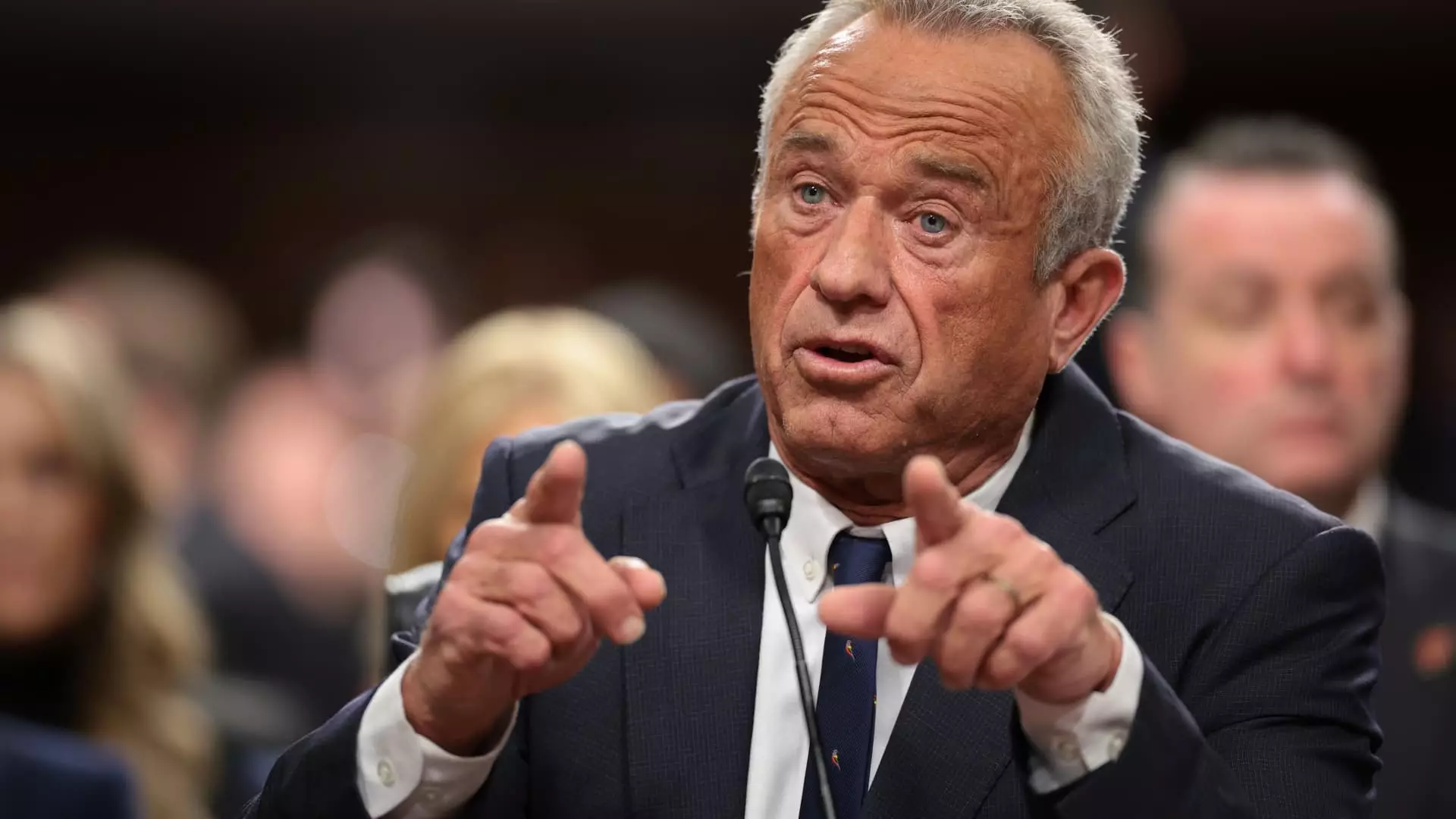In an era where consumer awareness has reached unprecedented heights, Secretary of Health and Human Services Robert F. Kennedy Jr. has ignited a passionate conversation about the food we consume. At a recent meeting with leading food executives, he set forth a bold mandate: to expunge “the worst ingredients” from our food supply by the end of his tenure. This move resonates deeply with a population that is increasingly disillusioned by the contents lurking in their meals—particularly artificial additives that have been linked to health issues. But despite this noble intention, we must ask: is merely removing harmful ingredients enough, or is this just a surface-level fix to a more complex problem?
The Catch-22 of Corporate Collaboration
Kennedy’s willingness to engage with key players in the food industry, including giants like PepsiCo, Kraft Heinz, and General Mills, raises eyebrows. While dialogue is essential, there’s a glaring concern regarding the inherent conflict of interest in such partnerships. Can companies motivated by profit truly prioritize consumer health over their bottom line? Imagine a world where companies are incentivized to maintain the status quo, all while masquerading as champions of health and wellness. This conjecture leads to skepticism: will the food industry ever fully commit to removing harmful ingredients when a less scrupulous approach could yield higher profits?
The Secretary emphasized a constructive approach, but the question remains: how much trust can we place in the industry? The Consumer Brands Association lauds the meeting as a “productive first step,” but it also exemplifies how entrenched corporate interests can dilute genuine reform. Effective change, in this landscape, demands more than cooperative dialogues; it necessitates a broader commitment to ethical practices that transcend mere compliance with regulatory standards.
The Perils of Blind Trust in Regulatory Bodies
Kennedy’s mission includes addressing the chronic disease epidemic affecting both children and adults, and he criticizes the existing regulatory framework as a troubling alliance between health agencies and food manufacturers. However, the very same body that he oversees, the Food and Drug Administration (FDA), has a mixed record on safeguarding public health. The recent revocation of Red No. 3—a dye linked to cancer in animals—highlights a troubling precedent where ingredients were tolerated until overwhelming evidence prompted action, often decades late.
Such historical context is essential when assessing Kennedy’s promise to transform the food landscape. Are we prepared to rely on a system that permits harmful substances for extended periods while public health tools like vaccinations face similar scrutiny? Kennedy’s critics, especially those concerned with immunization, question whether he can truly pivot towards a preventive health model without succumbing to the same systemic flaws he seeks to rectify.
The Risk of Misinformation and Its Ripple Effects
Kennedy’s notorious skepticism towards vaccines adds yet another layer of complexity to this discourse. His approach to food safety and public health reforms may indeed intersect with a re-evaluation of vaccination protocols. Such a trajectory risks exacerbating the decline in childhood vaccination rates—a trend that has already raised alarms among health experts. The more we propagate misinformation, the more we jeopardize public health. If Kennedy’s agenda creates an environment that encourages questioning evidence-based science in nutrition and immunization alike, will we witness a return to the health crises of the past?
In asserting the need for nutritious food over pharmaceuticals, Kennedy seems to advocate for a holistic health narrative. However, this idea becomes problematic when it implies a binary choice between two vital aspects of public health—nutrition and immunization. The debate shouldn’t revolve around the dichotomy of food versus medicine; instead, it should explore ways for these domains to harmoniously coexist as co-factors in a comprehensive strategy for tackling chronic health issues.
A Call for Nuanced Conversations
Amidst all this complexity, Kennedy’s overarching message is clear: Americans deserve better. Yet, creating a genuinely healthy food culture requires more than a simple overhaul of regulations. Efforts must include sustained dialogues among health professionals, consumers, and the food industry. Only through transparent, informed discussions can we hope for a future where food quality is intrinsic to our health choices. The path to true reform is steeped in transparency, accountability, and a willingness to question not just our food but the systems surrounding it. In this tug-of-war between consumer rights and corporate interests, the stakes couldn’t be higher.


Leave a Reply